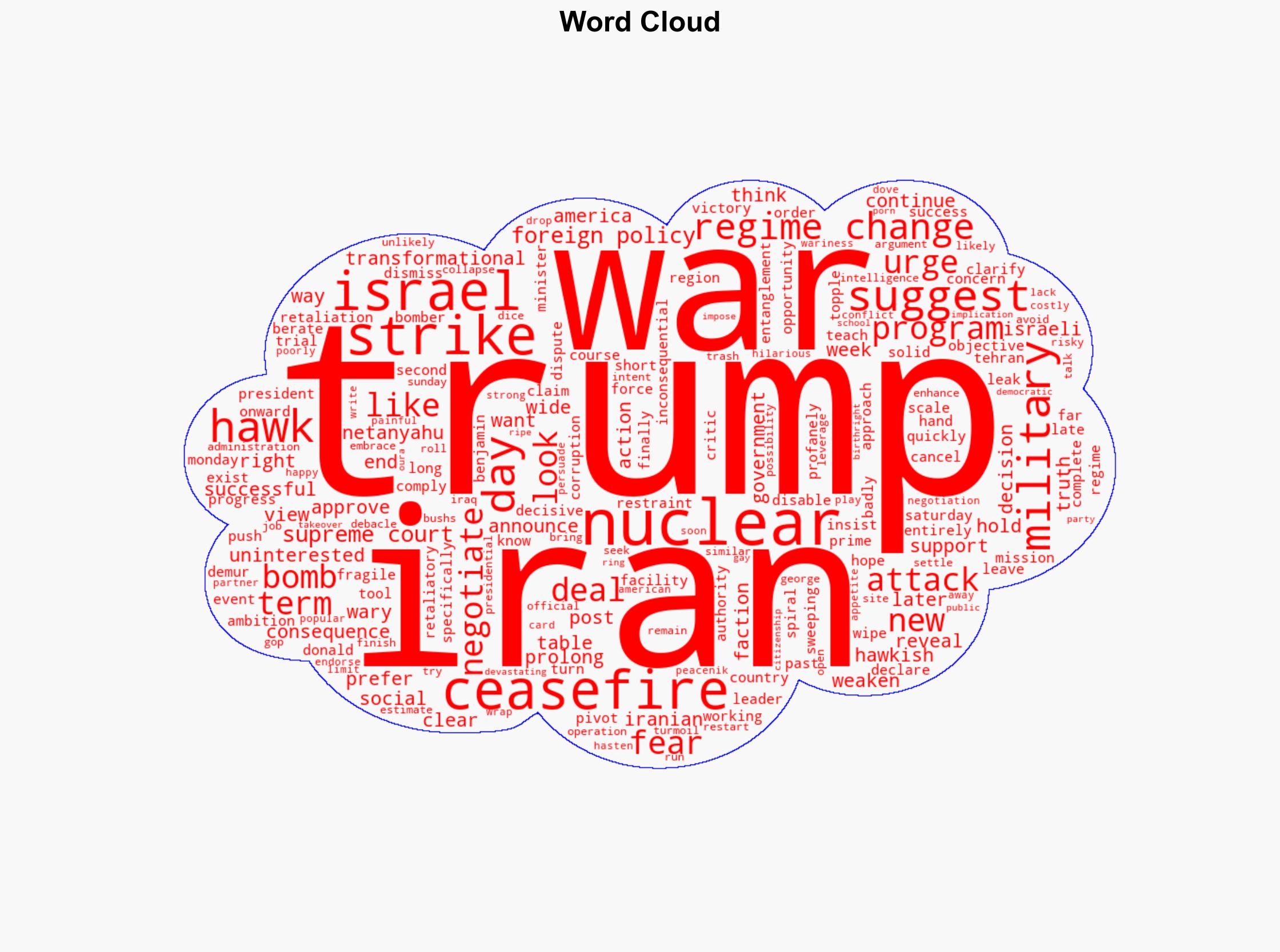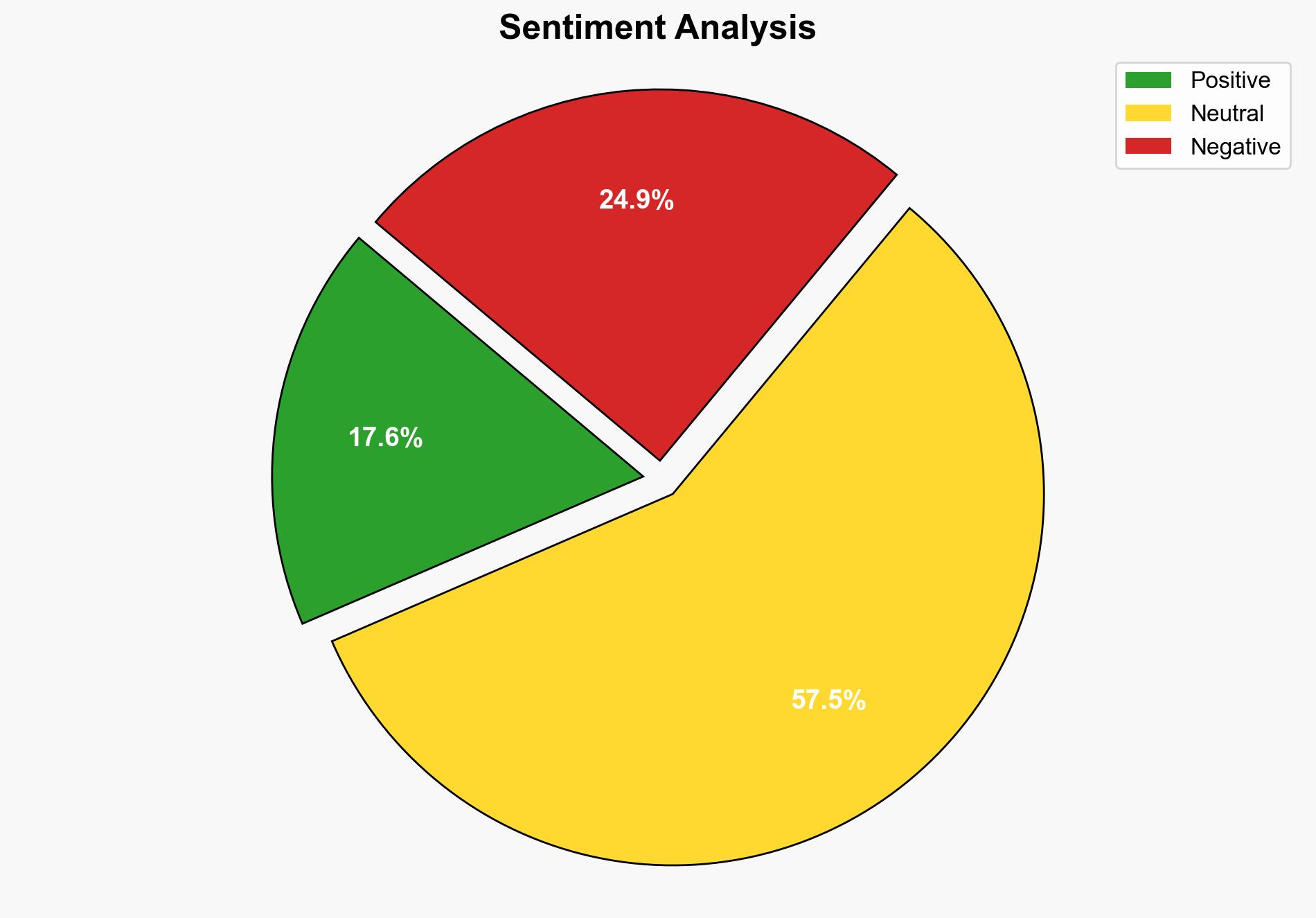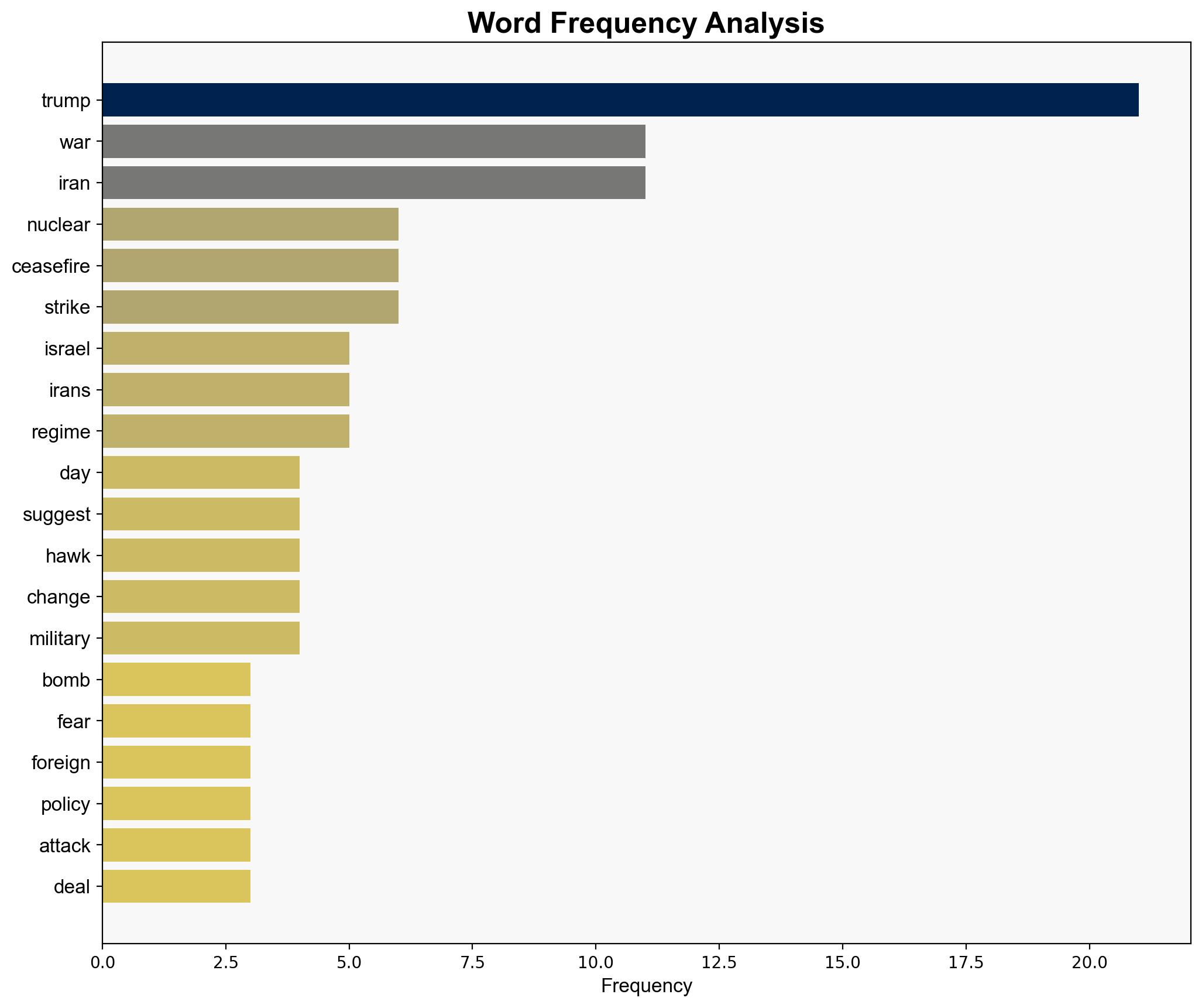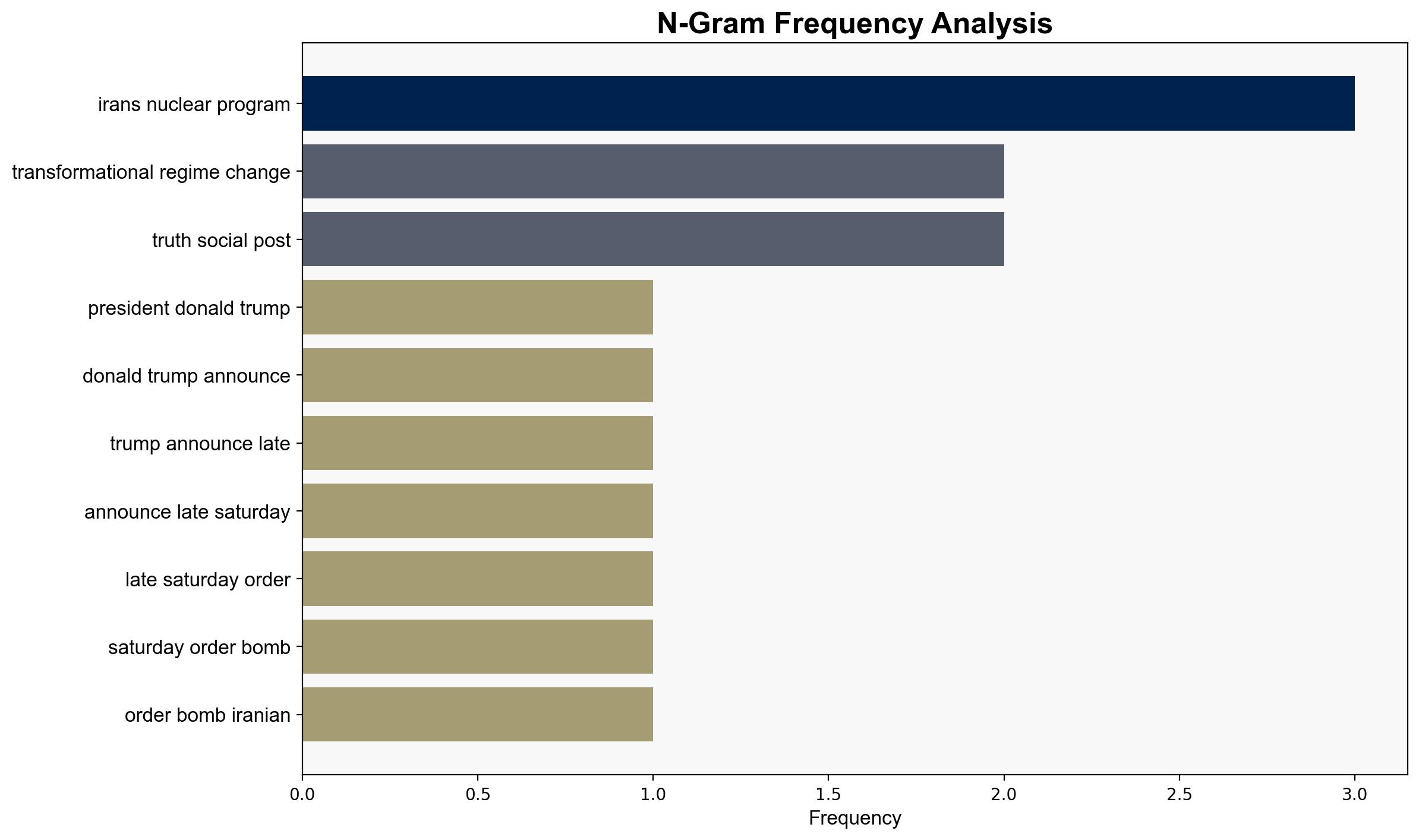What the 12-day war teaches us about Trumps foreign policy – Vox
Published on: 2025-06-27
Intelligence Report: What the 12-day war teaches us about Trump’s foreign policy – Vox
1. BLUF (Bottom Line Up Front)
The 12-day conflict involving the U.S., Iran, and Israel highlights President Trump’s strategic preference for short-term military interventions coupled with rapid diplomatic resolutions. This approach suggests a focus on leveraging military actions to enhance negotiation positions rather than pursuing prolonged engagements or regime changes. The ceasefire’s fragility underscores the need for careful monitoring and strategic diplomacy to prevent escalation.
2. Detailed Analysis
The following structured analytic techniques have been applied to ensure methodological consistency:
Causal Layered Analysis (CLA)
Surface Events: The U.S. strike on Iran’s nuclear facilities and subsequent ceasefire.
Systemic Structures: U.S. military capabilities, Iran’s nuclear ambitions, and Israel’s security concerns.
Worldviews: U.S. preference for negotiation over regime change; Iran’s resilience against external pressure.
Myths: The belief in decisive military victories as a means to secure long-term peace.
Cross-Impact Simulation
The conflict’s impact on regional stability is significant, with potential ripple effects on neighboring countries’ security postures and economic conditions. The ceasefire’s success or failure could influence regional alliances and power dynamics.
Scenario Generation
Best Case: The ceasefire holds, leading to renewed diplomatic talks and stabilization of the region.
Worst Case: Ceasefire collapses, escalating into broader regional conflict.
Most Likely: Periodic tensions with intermittent diplomatic engagements, maintaining a fragile peace.
3. Implications and Strategic Risks
The conflict reveals vulnerabilities in regional security frameworks and the potential for rapid escalation. The U.S. strategy of quick military actions followed by diplomacy may deter immediate threats but risks long-term instability. Cyber threats and economic disruptions are potential cascading effects that require vigilance.
4. Recommendations and Outlook
- Enhance diplomatic efforts to solidify the ceasefire and address underlying tensions.
- Strengthen regional alliances to counterbalance potential Iranian retaliations.
- Monitor cyber activities closely to prevent disruptions in critical infrastructure.
- Scenario-based projections suggest maintaining readiness for both escalation and diplomatic breakthroughs.
5. Key Individuals and Entities
Donald Trump, Benjamin Netanyahu
6. Thematic Tags
national security threats, cybersecurity, counter-terrorism, regional focus





